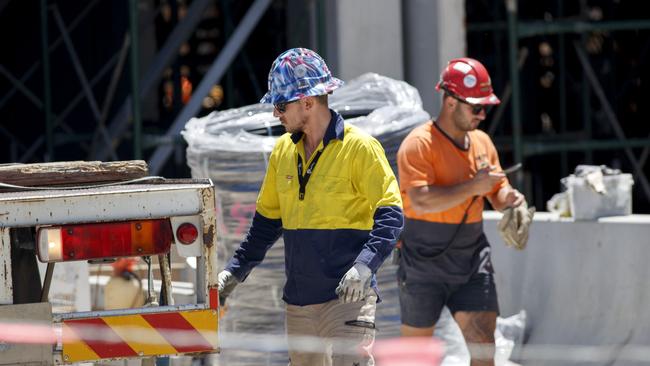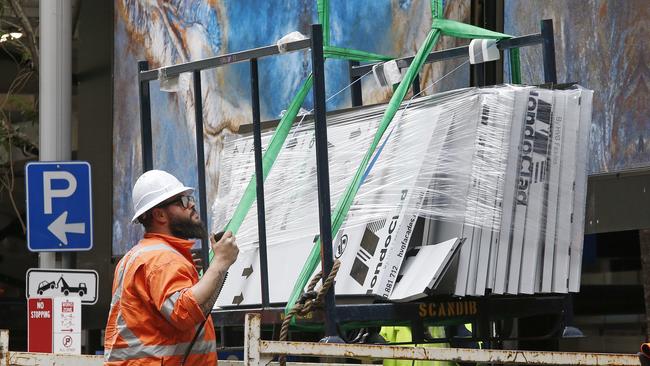‘Paying staff wrongly’: 20 per cent of employers fear new workers laws
One in five employers suspect they’re not paying their staff correctly, a survey has revealed, as new laws mean they risk huge fines or even jail time.

Companies
Don't miss out on the headlines from Companies. Followed categories will be added to My News.
Aussie businesses are fearing jail time and multi-million dollar penalties as new wage theft laws come into effect, survey results show.
Results of a survey issued by payroll software business Yellow Canary revealed 19 per cent of businesses suspect they have an issue with pay, while 17 per cent are unsure.
One third of respondents confirmed there had been a payroll issue in the past that they believe had been corrected, while 22 per cent had recently identified an issue and were in the process of correcting it.
Yellow Canary’s survey found that about 40 per cent of payroll bosses were concerned the new wage theft laws would increase their administrative burden.

The survey, which asked payroll bosses across 533 companies with between 50 and 5000 employees, was conducted by Lonergan Research on behalf of Yellow Canary.
New laws that criminalise the deliberate underpayment of workers came into effect in Australia from January 1.
Under the legislation, a company can face fines of up to $8.25m or three times the amount of the underpayment, whichever is greater. An individual can face up to ten years in prison, and fines of up to $1.65 million, or three times the amount of the underpayment, whichever is greater.
Civil penalties for wage underpayments will also increase today by as much as 25 times for larger companies engaged in serious contraventions, which could now be fined up to $4.95 million.

The changes to the law comes as the Fair Work Ombudsman estimates Aussies lose between $850m to $1.55bn a year in stole wages.
ACTU acting secretary Joseph Mitchell said businesses are being put on notice after years of getting away with wage theft.
“The tough laws that come into force today will make a huge contribution to ending wage theft as a business model,” he said.

“After a decade of inaction on wage theft and national scandals at places like 7-eleven, Commonwealth Bank and at universities, this action is welcome. Workers deserve every dollar of their pay and super, and should get the money that is owed them.”
Workplace Relations Minister Murray Watt said the long-awaited wage-theft laws would mean it would “finally” be a criminal offence to deliberately underpay workers.
“Businesses deliberately doing the wrong thing will be caught, and will be charged,” Senator Watt said.
Mr Mitchell said businesses who want to avoid punishment should simply pay their workers appropriately.
“That shouldn’t be a controversial thing to say, especially in a cost-of-living crisis. But apparently, it’s a bridge too far for Peter Dutton and the Opposition that has voted against these laws and presided over the explosion of wage theft as a business model during their near-decade in government,” Mr Mitchell said.

Meanwhile, the Fair Work Ombudsman Anna Booth came out defending the new laws, speaking to the ABC about how the new laws only criminalise businesses who are intentionally ripping off workers.
“This is a criminal offence that depends upon the action or inaction being intentional,” she said.
“It is intentional underpayment of an amount due to be paid.”
Ms Booth said proving intention would lie in the hands of Commonwealth prosecutors.
“We investigate the criminal standard then hand it over,” she said.
“The intention is something the (prosecutors) would be well experienced in proving beyond reasonable doubt.
“A simple way of putting it would be if the action was on purpose or there was no action or a failure to pay at all purposeful or deliberate.”
Originally published as ‘Paying staff wrongly’: 20 per cent of employers fear new workers laws


